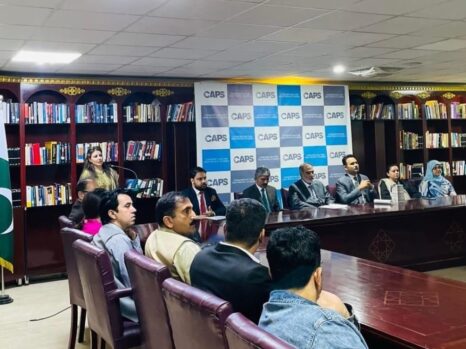Journalism Fellowships
Journalism Fellowships provide journalists with resources they need to focus on an in-depth story and expose them to other kinds of reporting they have not done before. These fellowships also provide journalism students with privileges in the media industry. This list includes a wide variety of short and long-term journalism fellowships in the U.S. and abroad for broadcast, print, radio, and digital media journalists.
Journalism Fellowships
Journalism Fellowships has helped bring together diverse journalists to reflect on each other’s works and give necessary recommendations and acknowledgments. Fellowships just as the name implies aim at bringing together all practicing journalists across the globe to enable them research on topics of their choice, usually related to their area of specialization, and deliver broader works on it to produce the media industry with something handy and useful for the general public.
Journalism Fellowships in its broader sense offers a networking platform to global journalists and giving them something meaningful as results after spending their time away from the daily pressure of seeking news and updates for their clients and meeting up with deadlines. They also get to examine the core issues faced by the industry and in return seek useful solutions to the discovered problems. Amateurs also get to meet with professionals, experts and experienced practitioners. Fellowships usually last between the range of three to six months.
Academic development
Undoubtedly, fellowships improve those in the career of journalism as they undertake extensive research in key areas affecting their career, while having benefited from the extensive learning process offered by the organization. In the periods of fellowship, careerists also get various encouragements from specialists in their field.
Industry insights
Seminars will also be given to those who are present. The seminars usually covers a high level of insights into the industry from different guest speakers from world-class news organizations. The insights they gain will definitely help them make the economy useful to their gain as they already will have deeper insights and ideas of what they would be facing out there. By having ideas and insights on approaching challenges and difficulties in the industry, they will become more productive in executing their duties.
Knowledge and cultural exchange
Through journalism fellowships, everyone will have access to exchange and share ideas cum experience with one another. The table which usually brings together international peer groups from all over the world helps strengthen the network of all journalists, thereby helping them develop acquaintance with anyone they so wish to. Insights into international developments and trends will keep the cultural and political heritage of organizations and institutions represented by candidates from each location.
Popular Journalism Fellowships
- Alicia Patterson Foundation
The Alicia Patterson foundation program commenced in 1965, in the loving memory of Alicia Patterson who was the editor and publisher of Newsday for over two decades before her death in 1963. It could be said that naming the foundation after Alicia Patterson was to motivate journalists through the effectiveness of the deceased works before her demise.
That being said, the fellowship provides itself as a competitive platform for all interested working journalist who wants to pursue independent projects that would make significant changes and revolution in the world. The journalists are hereby trained to write based on their own investigations and research works.
Winners of this fellowship do not go home empty-handed, the organization usually reward them with a cash prize of $40,000 a year. These winners are chosen based on merit through the annually conducted competition; and are decided by a panel of experienced and professional journalists who fall into the position of judges.
- John S. Knight Journalism Fellowships at Stanford
The John S. Knight Journalism Fellowships at Stanford, formerly called Professional Journalism Fellowships Program at Stanford University (1966–1984), is a paid journalism fellowship which falls into the category among the best journalism fellowships available for working journalists.
This journalism fellowship is open to a number of twenty (20) professional journalists each year; these journalists must have a minimum of five years experience. For journalists to be taken into this fellowship, they must possess the needed ability to identify and make necessary changes in the industry of journalism which they want to work in. In accordance with the program, “They are expected to come in to the program with a wide range of questions more than answers, being the fact that we want the enthusiasm in them to deliver to them a wide range of experimented solutions as they apply what they have learnt.” Named after the American Newspaper publisher cum editor, John S. Knight, the fellowship lays rigid emphasis on journalistic innovation, leadership and entrepreneurship.
- The Nieman–Berkman Fellowship in Journalism Innovation
The Nieman–Berkman Fellowship is a joint fellowship between the Nieman Foundation and the Berkman Klein Center for Internet & Society. The fellowship which began awarding in 2012 recognizes scholarships who have project proposals in contents related to innovation in journalism. They give ultimatum recognition to the creative works of a journalist’s imagination, thereby, promoting a sense of creativity in their own way.
- The Knight Visiting Nieman Fellowship
The Knight Visiting Nieman fellowship is funded by the John S. and James L. Knight Foundation. The platform offers a kind of shirt term research opportunity to interested working journalists who are working on some special projects designed to advance and promote the journalism career in one way or the other.
A very integral criterion for accepting journalists into the fellowship is that all applying candidates must be working journalists, this must be demonstrated in the way they carry out their duties. This fellowship with Harvard and the Nieman Foundation will also improve their point of view and aspirations for future achievements in the field of journalism.
Conclusion
For every one of these fellowships, it is important to note that years of experience is strictly emphasized. The journalists – be it writers, publishers, reporters or even photojournalists- must prove their competence through the series of panels they will face in the process of chasing this award.
Finally, the aim of these journalism fellowships is also said to have remained rigid and unchanging during the range of time, evolution and all these transformations happening all around. They continually equip journalists with what is most needed and necessary for elevating and taking both their career and the journalism field to a whole new level.














